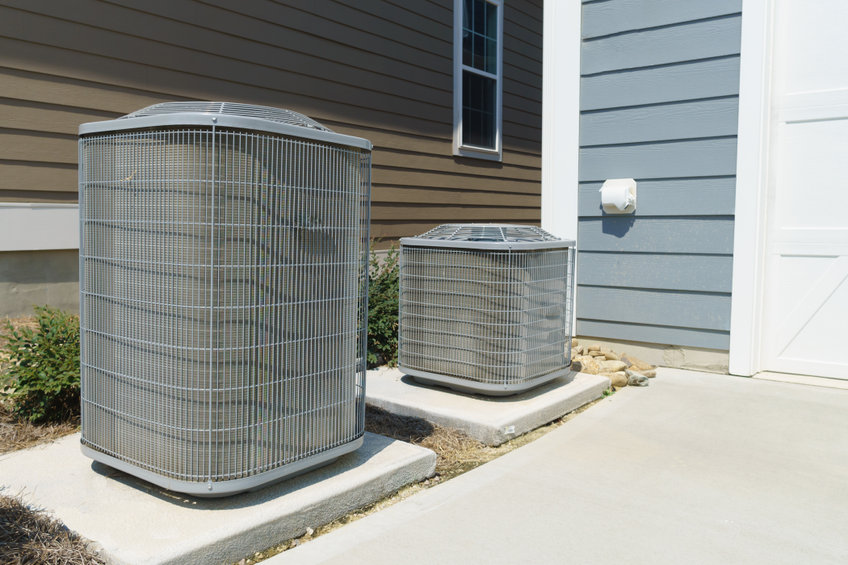
Heating and cooling make a home comfortable and livable. Everyone loves a warm, cozy home in the winter and a cool, energizing home in the summer. Thus, heating, ventilation, and air conditioning (HVAC) is one of the most important systems in a home.
Know HVAC for Fix and Flip Investments
When evaluating a home’s value as a fix and flip investment in Maryland, Virginia, and Washington DC, be sure to determine the status of the HVAC system. Before making an offer on a DC Metro investment property, you need to understand the age, condition, and reliability of the HVAC. Bottom line, you will most likely need a home inspection by an accredited home inspector unless you have HVAC experience yourself.
Home Inspections Can Detect HVAC Issues
Though a home inspection is not required to obtain a hard money loan with us, it’s a good idea to hire a professional to walk through your property to identify potential issues – including potential HVAC issues. If an HVAC system is older, only a professional inspection can detect issues with ventilation, heat exchangers, and other HVAC equipment. An inspection report will outline the condition of the home’s heating and central air conditioning systems, plus plumbing, electrical, foundation, roof, windows, doors, and more. Inspection reports generally are worth the investment, because they save buyers money in the long run. Inspections lead to fewer unexpected surprises that can eat up a rehabber’s budget and chip away at profits.
Conduct an HVAC Evaluation
Property investors should know exactly what they’re purchasing. Here’s what to look for in HVAC at a fix and flip property.
Fuel Systems in Rehab Homes Affect Resale Value
First, determine what fuel system is used for HVAC in the house, since this may affect resale and the cost to heat. There are different efficiencies with LP (liquefied petroleum), natural gas, and electricity. If the house is heated with LP, find out if the LP tank is owned by the property owner or leased from the LP company. It will save you some pain if you think you’re getting a tank and find out you’re getting a lease.
Heat Source & Ductwork Affect Add-ons
Next, determine the home’s heat source. The most common are:
- Forced air
- Hot water
- Electric
The heat source affects the value of a home and factors into maintenance or renovation decisions. The type of system affects add-ons like central air. For example, a hot water heating system doesn’t have ductwork to connect to central air. Typically, rehabbers will pay less to add central air if the home already has ductwork. If a home doesn’t have ductwork, rehabbers might want to consider a high-velocity HVAC system or ductless mini-split. These systems typically cost less than installing ductwork.
Heat Vents & Cold Air Returns Affect Comfort
Then, determine the number of heat supply vents and cold air return vents in a home. An adequate number of vents supports proper airflow. Do a quick check to see if every bedroom has its own return-air system, which keeps indoor temperatures balanced and rooms at a comfortable temperature.
Age of the HVAC System Affects Efficiency
The age of the system is also important because age affects efficiency and the cost to repair or replace HVAC units. Especially important is the age and condition of the air conditioning system, if the home has one. For example, some homes in Baltimore were built before AC was commonplace. These Maryland homes aren’t equipped with air conditioning, which limits their appeal and consequently, their resale value.
Utility Costs & Insulation
Ask about the average utility costs to heat and cool the home. The efficiency of the heating system and the home’s insulation value both affect the cost of utilities. When checking the heating system in a home, also check how well the home is insulated. These two components work together to maintain a warm, comfortable living environment.
Cost to Replace HVAC
Replacing a full HVAC system can cost $5,000 to $10,000, although $7,000 is the national average, according to HomeAdvisor. This price includes the purchase and installation of the new unit, plus the removal and disposal of the old HVAC unit.
The breakdown of HVAC replacement costs, according to HomeAdvisor:
- Furnace: $2,700-$6,400. Costs are higher for high-efficiency models and for ductwork repairs.
- Heat pump: $4,200-$7,300
- Boiler: $3,700-$8,200
- HVAC Ducts: $500-$2,000
Costs vary, depending on the type and condition of the current system, but it’s easy to see these costs can add up quickly. If you have not budgeted to replace the HVAC system in your initial scope of work, freshly discovered HVAC issues might throw a wrench into your overall rehab plans. This is why it’s important to have reserves – additional funds that you can easily access to meet unanticipated expenses.
Contact New Funding Resources
At New Funding Resource, we base our private hard money loans on the projected value after the renovations are completed. This gives our rehabbers the leverage they need to flip homes or take their rehab business to the next level. Contact us for residential and commercial hard money financing, so you never miss out on an investment opportunity because you’re low on funds.
 New Funding Resources
New Funding Resources 





Leave a Reply